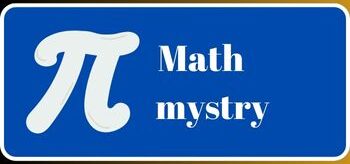Currently Empty: $0.00
The Riemann Hypothesis is one of mathematics’s most intriguing—and consequential—puzzles.
At the core of number theory, this conjecture, which was put forth in 1859 by the eminent German mathematician Bernhard Riemann, links prime numbers to the zeros of an abstract function. The greatest mathematical minds in the world have worked on the hypothesis for more than 160 years, but it has not been proven.
The Riemann Hypothesis: What is it and why is it important? Let’s examine one of the most significant mathematical riddles that has yet to be resolved.
The Problem That Defies Proof :
The Riemann Hypothesis is essentially about prime numbers, elusive integers (like 2, 3, 5, 7, 11…) that can’t be divided evenly by any number other than 1 and themselves. Although primes are the building blocks of all numbers, their distribution seems random. Riemann’s work revealed a hidden order beneath the chaos: he studied the Riemann zeta function, a complex mathematical function: ζ(s) = n=1∞ 1 s ½. Riemann found that the zeros.
Why should we care
Prime number unlocked
If proven true, the Riemann hypothesis would give mathematicians an exact formula for the distribution of the primes. This revolutionizes cryptography, computing, and our understanding of number theory.
Connections to physics:
Surprisingly, the distribution of Riemann zeros resembles the energy level of quantum physics. Some physicists believe solving this could unlock deep connections between math and the physical world.
A Million-Dollar Prize
The Clay Mathematics Institute has listed the Riemann Hypothesis as one of its seven “Millennium Prize Problems”—a correct proof earns you $1,000,000.
The Hunt for Proof
Over the years, many have claimed to solve the Riemann Hypothesis, only for errors to be found. Some notable attempts include:
- J. E. Littlewood (1914): Proved that infinitely many zeros lie on the critical line, but not all.
- Alan Turing (1950s): Used early computers to verify zeros—still no counterexample.
- Recent Supercomputers: Have checked over 10 trillion zeros, all on the critical line. But in math, checking cases isn’t enough—we need absolute proof.
- Will It Ever Be Solved?
- Some mathematicians believe we lack the necessary tools to crack the Riemann Hypothesis. Others think a young, undiscovered genius might one day see the problem in a new light.
- Until then, it remains one of math’s greatest mysteries—a puzzle that has humbled the brightest minds for centuries.
- What do you think? Will the Riemann Hypothesis ever be proven, or is it destined to remain an enigma?
- Final Thoughts:
- A Journey Without a Destination (Yet)
- At Mathmystry, we usually talk about journeys with tickets and timetables. But this journey — the search for the Riemann Hypothesis — travels through time, thought, and imagination.
- It’s a reminder that some mysteries aren’t solved in days or years, but they still light a fire in those brave enough to explore them.
- So whether you’re a math lover, a mystery seeker, or just someone who enjoys a good story, this one’s for you.
- The question is, will it be solved in our lifetime?


